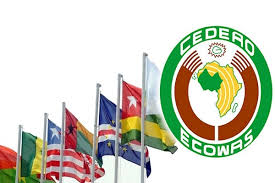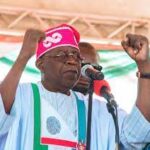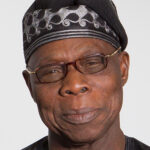By John Okeke
The Economic Community of West African States (ECOWAS) Parliament, has kick-started a process aimed at ensuring seamless communication within the West African sub-region.
This was even as the regional parliament lamented the difficulties associated with roaming within the ECOWAS sub-region.
Speaking during the opening ceremony of the Delocalised Meeting of the Joint Committee on Telecommunications and Information Technology/Education, Science and Culture/Trade Customs and Free Movement in Niamey, Niger Republic, Speaker of the ECOWAS Parliament, Sidie Mohamed Tunis, said issues concerning telecommunications, mobile roaming and its tariffs were quite critical and constitute major ingredients in the ECOWAS Integration Process.
Tunis also said in a study on Mobile Internet Adoption in West Africa, conducted by the Bonn Institute of Labour Economics in 2021, it was found that the widespread adoption and use of digital technologies have multifold potential for the sub-region.
The study, Tunis added, recorded benefits such as improved financial inclusion through mobile money applications, enhanced access to job opportunities from more effective delivery of basic services through e-government applications, as well as expanded access to markets through e-commerce.
Tunis however expressed regret that none of the benefits were achievable without first standardizing the tariff regime in the sub-region and making it cheaper, given that free communication is the anchor of free movement of people, goods and services and intra-regional trade.
“Additionally, data from the Global System for Mobile Communications Association (GSMA) shows that at the end of 2021, 515 million people subscribed to mobile services in Sub-Saharan Africa, representing 46 percent of the population, estimating an additional 100 million new subscribers by 2025, taking the total number of subscribers to 613 million, which is 50 percent of the region’s population.
“Again, in 2021, mobile technologies and services generated around eight percent of GDP across Sub-Saharan Africa, almost $140 billion of economic value addition. The mobile ecosystem also supported more than 3.2 million jobs (directly and indirectly) and contributed substantially to public sector financing to the tune of $16 billion raised through taxes on the sector. Projections are that, by 2025, mobile’s contribution will grow by $65 billion (to almost $155 billion), as the countries in the region increasingly benefit from improvements in productivity and efficiency brought by the increased subscription to mobile services.
“Further to that and in the sub region in particular, the mobile telecommunication space directly employs around 200,000 people formally, with another 800,000 jobs in the informal sector. Clearly therefore, it can be concluded that the mobile telecommunications industry is at the heart of both economic and social progress in West Africa, which are the main objectives of the ECOWAS.
“This also implies that mobile connectivity has the potential to accelerate sub regional digital transformation and drive socioeconomic advancement in many areas of our lives including healthcare, education, digital commerce, industrial automation and smart city infrastructure, thereby supporting the sub regional quest for integration,” Tunis said.
The ECOWAS Parliament Speaker however said the burden or cost of connectivity served as a great disincentive for mobile adoption and penetration.
“This is especially the case for mobile roaming services in the ECOWAS sub-region. The lack of standardization and harmonization in the tariff regime among the mobile network operators in the Community has become the first challenge to integration, given that communication is the prerequisite to integration anywhere in the world.
“A careful look at the data shows clear and conspicuous disparities and a lack of standardization in the tariff rates for networks in the sub region, where only a 100 meter distance separates our countries in some cases. With this level of disharmony in our tariff regime, communication becomes a burden, and it is difficult to stimulate commerce and integration. What is more disturbing is that, in some of our neighbouring countries, it is the same network operators, yet they fail to harmonize the charges for roaming,” Tunis also said.
In his remarks, Speaker of the Republic of Niger National Assembly, Seini Oumarou, expressed delight that the meeting is looking into such a relevant subject as the roaming of telephone communications in the sub-region.
“This subject is all the more relevant since communication systems using new technologies constitute real support measures for all our efforts to the development and above all vectors, par excellence of the integration of our space.
“Indeed, if we want to have the best part of our economy in our community, we must prevent space and borders from becoming obstacles to free communication. Both administrators and economic operators should be able to ensure the continuity of their communications from one locality to another, from one country to another. We should therefore ensure that an effective system of roaming is ensured first, in each of our countries and then across our borders,” Oumarou said.
Oumarou also said within countries, the system must be able to allow any user to access the telephone network anywhere, even if the operator to which he subscribes is not accessible.
“At the inter-community level, the roaming system must be continuous, reliable and without additional cost, like current practices in other economic communities,” Oumarou also said.
Earlier, Oumarou said ECOWAS represented the organic solidarity between states as between all fellow citizens.
“It represents this to make great strides in all these gigantic projects that contribute to the construction of an emergence project for our sub-region, as a whole!
“That we are gathered here today, for this opening ceremony of a parliamentary meeting of a technical nature, is living proof that our States are gradually on the way to fulfilling the promise of the founding fathers of ECOWAS to make our sub-region a united community space for the greatest happiness of our courageous populations,” Oumarou stated.
On his part, the President of the ECOWAS Commission, Omar Alieu Touray, said the catalytic role of telecommunications networks in facilitating regional integration cannot be overemphasized.
Touray who was represented by the ECOWAS Commissioner for Energy and Mines, Douka Sediko, also said in terms of end-user access, mobile technology has offered an opportunity to connect community citizens more easily.
“However, despite the ubiquity of this technology, West Africa still faces several other challenges in the ICT sector, including: the penetration rate of unique mobile subscribers in the region is on average 50 of the population, but very slightly higher than that of the other regional economic communities of sub-Saharan Africa and lower than the world average which is 67.
“Of the 85 mobile subscribers covered by mobile broadband, only 44 are actually using it, representing a usage gap of 41. This is attributed to affordability and—risk—competences challenges.
“An internet penetration rate of 54.3 in December 2021 in the region is still low.
“The regulatory environment in the region needs to be improved to take into account the evolution of the sector and promote competition,” Touray said.



